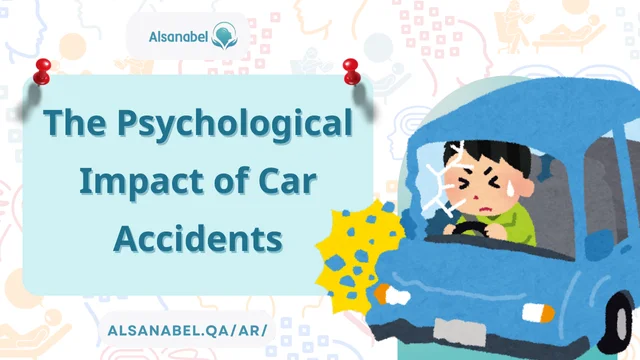
Car accidents can be life-changing, both physically and emotionally. The impact of a traumatic car crash often extends beyond immediate physical injuries, leaving survivors grappling with long-lasting psychological challenges. Post-Traumatic Stress Disorder (PTSD) is one such challenge that can arise after a car accident. This article delves into the relationship between PTSD from car accident experiences, the symptoms, recovery strategies, and the available treatments for survivors.
The Psychological Impact of Car Accidents

Understanding Car Accident Trauma
Car accidents are sudden, often terrifying events that can cause deep emotional and psychological scars. The term car accident trauma refers to the emotional and mental distress that individuals experience due to the shock and fear associated with the crash. The severity of this trauma can vary depending on the circumstances, including the level of danger perceived, injuries sustained, and the loss of life involved.
How Trauma Leads to PTSD
When the mind struggles to process and cope with the events of a car accident, it may lead to the development of PTSD. This condition is characterized by persistent emotional distress and an inability to move past the traumatic event. Many individuals find themselves reliving the crash through intrusive memories, flashbacks, or nightmares. For some, even the sight of a car or the sound of screeching tires can trigger intense fear, making everyday activities overwhelming.
Recognizing PTSD After a Car Crash
Symptoms of PTSD
While PTSD manifests differently in each individual, there are several hallmark symptoms. These include:
- Intrusive Memories: Recurrent, unwanted memories of the accident or distressing dreams that replay the incident.
- Avoidance Behaviors: Steering clear of locations, situations, or conversations that remind them of the crash.
- Hyperarousal: Increased irritability, difficulty sleeping, or heightened vigilance as if danger is constantly imminent.
- Negative Changes in Mood and Thinking: Feelings of hopelessness, detachment from loved ones, or persistent guilt.
Experiencing a combination of these symptoms for an extended period may point to PTSD after car crash events.
Physical and Emotional Responses
In addition to emotional symptoms, individuals may experience physical symptoms such as headaches, rapid heart rate, or nausea when exposed to reminders of the accident. Emotionally, survivors might struggle with overwhelming fear, anxiety, and even depression, further complicating their recovery journey.
Recovering from PTSD After a Car Accident
The Journey to Recovery
Recovering from car accident PTSD is not an overnight process. It requires a combination of professional support, personal determination, and the right coping strategies. The recovery journey begins with acknowledging the trauma and seeking help from qualified professionals who specialize in PTSD.
Professional Support
- Psychotherapy: Therapy is often the cornerstone of recovery. Techniques like Cognitive Behavioral Therapy (CBT) help individuals reframe their thoughts and address the root causes of their fear.
- Eye Movement Desensitization and Reprocessing (EMDR): This specialized therapy at Al Sanabel Specialized Psychiatric Center In Qatar helps process traumatic memories and reduce their emotional intensity.
- Medication: In some cases, antidepressants or anti-anxiety medications are prescribed to alleviate severe symptoms.
Self-Care and Personal Strategies
In addition to professional treatment, self-care plays a pivotal role in recovery. Engaging in regular physical activity, maintaining a healthy diet, and practicing mindfulness or relaxation techniques can help reduce stress levels. Building a support network of family and friends can also provide comfort and encouragement throughout the healing process.
The Importance of PTSD Treatment After Accidents
Why Seek Treatment?
Ignoring the signs of PTSD can lead to long-term complications, including chronic anxiety, depression, or difficulties in maintaining relationships and employment. Early intervention with PTSD treatment after accidents can significantly improve outcomes and help individuals regain control of their lives.
Effective Treatment Approaches
- Trauma-Focused Therapy: These sessions help individuals confront and process their trauma in a controlled environment.
- Group Therapy: Sharing experiences with others who have faced similar challenges can foster a sense of community and understanding.
- Behavioral Interventions: Techniques such as exposure therapy allow individuals to face their fears in gradual, manageable steps.
FAQs: Addressing Common Concerns About PTSD

1. What are the common symptoms of PTSD?
The common symptoms include flashbacks, intrusive thoughts, avoidance of reminders, heightened alertness, and negative changes in mood and behavior.
2. How is PTSD diagnosed?
PTSD is diagnosed by mental health professionals through comprehensive assessments that evaluate symptom patterns, duration, and their impact on daily life.
3. What are the treatment options for PTSD?
Treatment options include psychotherapy (CBT and EMDR), medication, group therapy, and self-care practices tailored to the individual’s needs.
4. Can PTSD occur after a car accident?
Yes, car accidents are a leading cause of PTSD, especially when the crash involves serious injuries, a threat to life, or significant emotional distress.
5. How can I help someone with PTSD?
You can help by offering emotional support, encouraging them to seek professional help, and creating a safe environment for them to share their feelings without judgment.
PTSD from car accidents is a deeply impactful condition that affects countless individuals each year. Understanding the causes, recognizing the symptoms, and seeking appropriate treatment are vital steps toward recovery. By addressing car accident trauma with compassion and evidence-based strategies, survivors can rebuild their confidence, regain control, and move forward with their lives.
